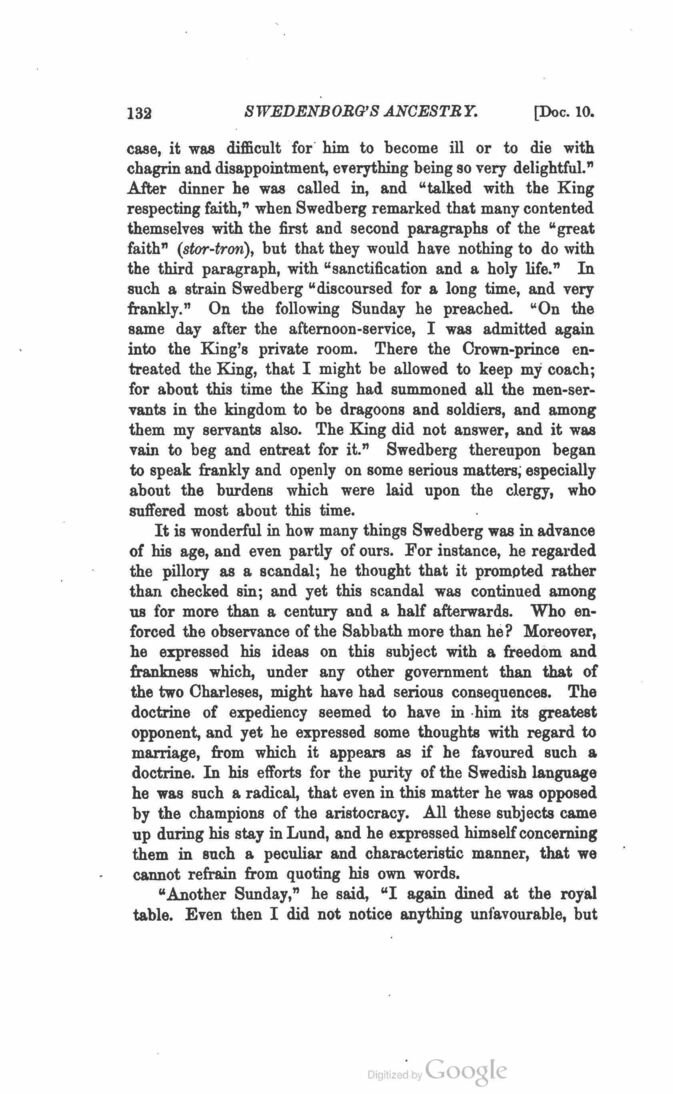
Full resolution (JPEG) - On this page / på denna sida - Sidor ...

<< prev. page << föreg. sida << >> nästa sida >> next page >>
Below is the raw OCR text
from the above scanned image.
Do you see an error? Proofread the page now!
Här nedan syns maskintolkade texten från faksimilbilden ovan.
Ser du något fel? Korrekturläs sidan nu!
This page has never been proofread. / Denna sida har aldrig korrekturlästs.
132 [Doc. 10.
SWEDENBORG’S ANCESTRY.
case, it was difficult for him to become ill or to die with
chagrin and disappointment, everything being so very delightful."
After dinner he was called in, and “ talked with the King
respecting faith,” when Swedberg remarked that many contented
themselves with the first and second paragraphs of the “ great
faith " (stor -tron ), but that they would have nothing to do with
the third paragraph, with “ sanctification and a holy life." In
such a strain Swedberg "discoursed for a long time, and very
frankly." On the following Sunday he preached. “On the
same day after the afternoon -service, I was admitted again
into the King’s private room. There the Crown-prince en
treated the King, that I might be allowed to keep my coach;
for about this time the King had summoned all the men -ser
vants in the kingdom to be dragoons and soldiers, and among
them my servants also. The King did not answer, and it was
vain to beg and entreat for it. ” Swedberg thereupon began
to speak frankly and openly on some serious matters, especially
about the burdens which were laid upon the clergy, who
suffered most about this time.
It is wonderful in how many things Swedberg was in advance
of his age, and even partly of ours. For instance, he regarded
the pillory as a scandal; he thought that it promoted rather
than checked sin; and yet this scandal was continued among
us for more than a century and a half afterwards. Who en
forced the observance of the Sabbath more than he? Moreover,
he expressed his ideas on this subject with a freedom and
frankness which, under any other government than that of
the two Charleses, might have had serious consequences. The
doctrine of expediency seemed to have in him its greatest
opponent, and yet he expressed some thoughts with regard to
marriage, from which it appears as if he favoured such a
doctrine. In his efforts for the purity of the Swedish language
he was such a radical, that even in this matter he was opposed
by the champions of the aristocracy. All these subjects came
up during his stay in Lund, and he expressed himselfconcerning
them in such a peculiar and characteristic manner, that we
cannot refrain from quoting his own words.
“ Another Sunday ,” he said, "I again dined at the royal
table. Even then I did not notice anything unfavourable, but
<< prev. page << föreg. sida << >> nästa sida >> next page >>